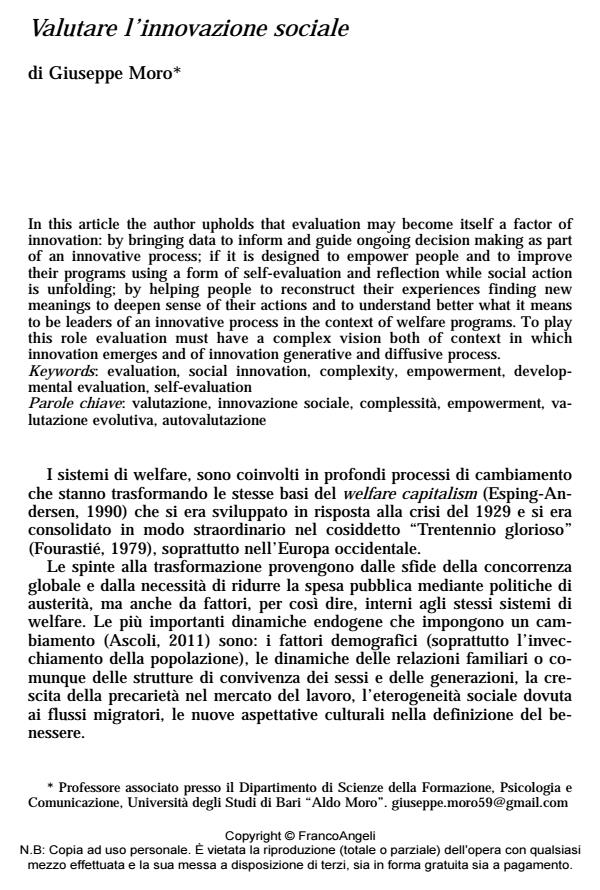Evaluating social innovation
Journal title SALUTE E SOCIETÀ
Author/s Giuseppe Moro
Publishing Year 2015 Issue 2015/1
Language Italian Pages 11 P. 69-79 File size 45 KB
DOI 10.3280/SES2015-001006
DOI is like a bar code for intellectual property: to have more infomation
click here
Below, you can see the article first page
If you want to buy this article in PDF format, you can do it, following the instructions to buy download credits

FrancoAngeli is member of Publishers International Linking Association, Inc (PILA), a not-for-profit association which run the CrossRef service enabling links to and from online scholarly content.
In this article the author upholds that evaluation may become itself a factor of innovation: by bringing data to inform and guide ongoing decision making as part of an innovative process; if it is designed to empower people and to improve their programs using a form of self-evaluation and reflection while social action is unfolding; by helping people to reconstruct their experiences finding new meanings to deepen sense of their actions and to understand better what it means to be leaders of an innovative process in the context of welfare programs. To play this role evaluation must have a complex vision both of context in which innovation emerges and of innovation generative and diffusive process.
Keywords: Evaluation, social innovation, complexity, empowerment, developmental evaluation, self-evaluation
- Relazionalità e partecipazione nella valutazione: un caso studio Andrea Biagiotti, Tiziana Tarsia, in RIV Rassegna Italiana di Valutazione 80/2022 pp.147
DOI: 10.3280/RIV2021-080008
Giuseppe Moro, Valutare l’innovazione sociale in "SALUTE E SOCIETÀ" 1/2015, pp 69-79, DOI: 10.3280/SES2015-001006